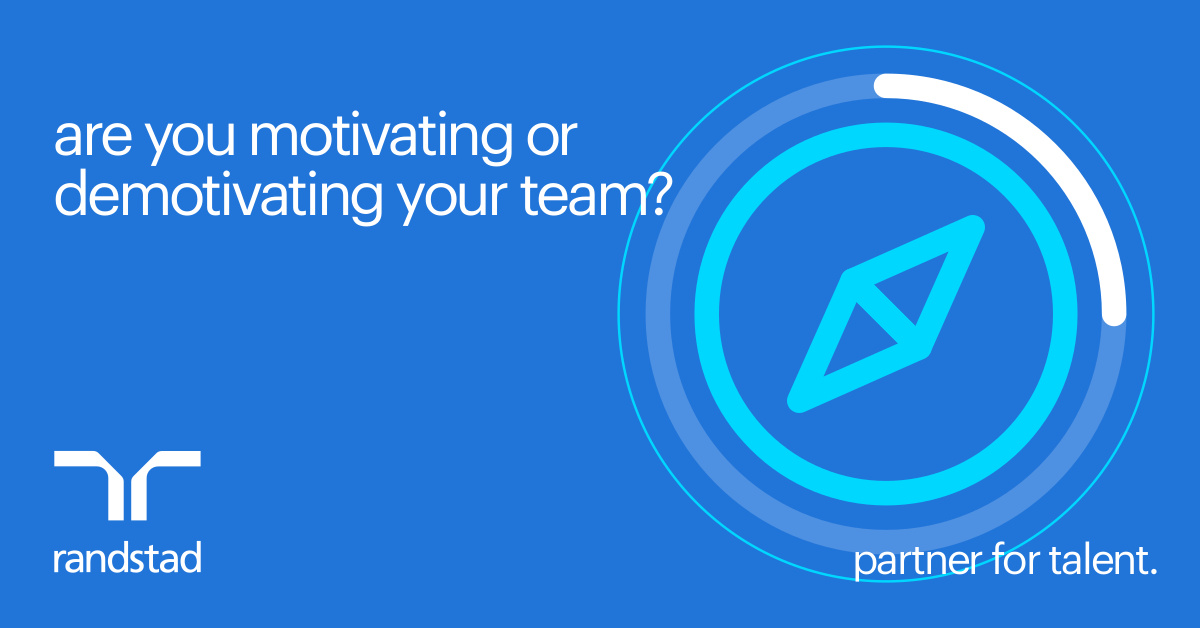Can Your Personality Predict Your Brain Health? Here's What the Research Says
We all want to live long and healthy lives, and most of us know that factors such as a healthy diet and exercise can keep our minds and bodies in good shape. But what if there’s another factor quietly influencing your brain health over the years — one that’s deeply personal and often overlooked?
Your personality.
It turns out that the way you think, feel and behave may play a meaningful role in how your brain ages. Research suggests that certain Big Five personality traits may be associated with an individual’s risk of age-related cognitive decline.
So, which traits are associated with stronger brain health, and which ones could put you at higher risk? Let’s take a closer look at the science behind personality and brain health – and what, if anything, you can do to stay mentally sharp as you age.
But first, one thing to keep in mind: While personality research offers insight into your cognitive well-being, it’s just one piece of the puzzle. Factors such as genetics, medical conditions and environmental influences also play important roles and should be considered when it comes to understanding brain health.
According to a study published in the Journal of Personality and Social Psychology, specific personality traits correlate with a person’s likelihood of developing mild cognitive impairment (MCI), a condition characterized by mild changes in cognitive abilities such as memory, thinking and reasoning. People with MCI are at a higher risk of developing dementia, although their cognitive abilities could also improve or remain stable.
The study observed three of the Big Five personality traits:
So, what do each of these traits have to do with brain health? The study, which analyzed more than 2,000 older adults for more than two decades, found that people who score high in Extraversion and Conscientiousness were more likely to live longer without developing dementia, while those who scored high in Neuroticism were more likely to experience cognitive decline.
The study found that people high in Conscientiousness were statistically 22% less likely to develop cognitive impairment, which translates to, on average, up to two additional years of cognitive health.
Why is that? Conscientious individuals tend to lead more structured, disciplined and health-conscious lives, all of which have protective effects on the brain. Research shows that high Conscientiousness is associated with health-promoting behaviors like regular exercise, better nutrition and routine medical checkups, and negatively associated with high-risk health behaviors like tobacco use, excessive alcohol use and dangerous driving.
Additionally, Conscientious people often engage in lifelong learning, goal setting and mentally stimulating activities — all of which build cognitive reserve, a concept in neuroscience that refers to the brain’s resilience against age-related damage. Research suggests that a higher cognitive reserve may delay the onset of dementia symptoms even when brain changes consistent with decline are present.
The study also found that those who scored high in Extraversion were more likely to live longer without developing dementia. Extraverts were also more likely to experience better cognitive outcomes after an MCI diagnosis.
One possible explanation is that Extraverts tend to maintain larger and more active social networks. Studies show that frequent social interaction can reduce the risk of dementia and slow cognitive decline, possibly by reducing loneliness, stress and depression. Socializing also stimulates various parts of the brain, keeping it more agile and adaptive.
But it’s not just about having a busy social calendar. Extraversion is associated with dopamine sensitivity, a neurotransmitter linked to reward, motivation and goal-directed behavior. This sensitivity can lead Extraverts to seek out stimulating environments, new experiences and engaging conversations — all of which are known to boost cognitive reserve.
When it comes to Neuroticism, the study found that high scorers had an increased risk of cognitive decline. Past research supports this finding, as studies show that stress, anxiety and rumination (the repetitive focus on negative thoughts) are linked to reduced brain volume over time.
High levels of stress can damage the hippocampus, the brain region involved in memory and learning. Over time, chronic psychological stress can shrink brain volume and reduce cognitive function. Moreover, individuals high in neuroticism are more likely to engage in maladaptive coping behaviors such as poor sleep, substance use and avoidance of health care, which may increase their risk of cognitive decline.
While those with lower scores in Extraversion and Conscientious, and a high score in Neuroticism, may be more likely to experience cognitive decline earlier than others, this doesn’t mean that your fate is sealed. Big Five traits are not fixed. Rather, they often gradually shift over time in response to major life events or even small habitual changes.
"One fascinating aspect of personality and brain health is that the relationship can run in both directions — personality traits influence brain aging, but brain changes can also shift our personality over time,” said Cameron Berg, Data Scientist at Truity.
So even if you tend toward high Neuroticism or score lower in Conscientiousness or Extraversion, there are steps you can take to protect and enhance your cognitive well-being.
"One fascinating aspect of personality and brain health is that the relationship can run in both directions — personality traits influence brain aging, but brain changes can also shift our personality over time." — Cameron Berg, Data Scientist
Routines may not come naturally, especially if you’re someone who scores on the lower end of the Conscientiousness scale, but even small, consistent changes toward a healthier lifestyle can make a difference.
Start by prioritizing daily actions that support cognitive and physical well-being, such as getting eight hours of sleep, eating a Mediterranean diet (one high in vegetables, fruits, healthy fats and fish) and moving your body regularly. These habits are associated with reduced inflammation, improved brain blood flow, and more stable mood and energy levels — all of which may contribute to lower risk of cognitive decline.
If these changes feel too big to make right now, ask yourself what small steps you can take to move toward these as end goals. Rather than immediately changing your diet, you could start with just one additional fish-based meal per week. If sleep is an issue, aim to go to bed just 15 or 30 minutes earlier than usual, until you’re able to gradually move towards a full eight hours per night.
When it comes to healthy habits, consistency is far more important than perfection.
For those high in Neuroticism, managing stress is especially important to brain health. Chronic anxiety and rumination wear down the brain over time, so cultivating emotional control (the ability to regulate and manage your emotions in healthy ways) is key.
Mindfulness practices like deep breathing, yoga and meditation can help you stay calm when stress or heavy emotions come up. When negative thoughts arise, try replacing them with more helpful and productive alternatives. For example, after receiving negative feedback on a project, instead of thinking, “I’m bad at my job,” reframe it as, “This feedback can help me become better at my job.”
Mindfulness and yoga aren’t just new-age trends — Berg explains there’s a science behind it: “Neuroticism is associated with heightened amygdala reactivity and altered prefrontal-amygdala connectivity, creating increased threat detection that accelerates brain aging through inflammation and oxidative stress.”
What this means is that more neurotic individuals’ brains are constantly in a state of high alert, scanning for potential threats. This state may lead the brain to age faster. That’s where mindfulness techniques come in.
“These brain changes can then increase Neuroticism, creating a feedback loop,” says Berg. “This helps explain why stress management techniques aren't just about feeling better — they may actually interrupt this cycle and protect brain function over time."
If you’re lower in Extraversion, you may not crave frequent socializing, but some level of regular connection is vital for brain health. But don’t worry Introverts, this doesn’t mean that you need to be around people all the time. What matters most isn’t the quantity but the quality of your connections.
What does this look like in practice?
Whether you’re a natural Extravert or Introvert, you can benefit from meaningful social connection.
Engaging in lifelong learning builds cognitive reserve, helping your brain become more resilient to age-related changes.
Research shows that curiosity is associated with more positive emotions, less anxiety and greater life satisfaction. It can also help us build empathy and strengthen our relationships. For people who are more prone to anxiety or avoidant behaviors, structured learning can also provide a sense of mastery and purpose — both important for emotional and cognitive health.
Lifelong learning is simply continuing to educate yourself on topics that are interesting to you. This may look like learning a new language, taking online courses, reading books, practicing a musical instrument, or doing puzzles and brain games.
Research suggests that a regular gratitude practice, such as writing about what you’re grateful for each morning, could contribute to improved mental health over time. This practice may be especially beneficial for those who score high in Neuroticism, since it trains the brain to focus on positive rather than negative emotions.
Other than keeping a gratitude journal, there are many ways to foster gratitude:
While there are many steps we can take individually to improve brain health, if your mental health symptoms feel overwhelming or persistent, there’s no shame in seeking professional help. Research shows that therapy can reshape the brain, improving emotional resilience and reducing symptoms of anxiety and depression.
And if you’ve noticed changes in your memory, focus or thinking skills, please check in with a qualified medical professional. This article is meant to share general information about brain health and helpful tips, but it’s not a substitute for personalized medical advice. When it comes to brain health, getting support early can make a big difference.
Your personality offers clues about your potential cognitive aging trajectory (especially when considered alongside other biological and lifestyle factors), but more importantly, it can guide you in making choices that nurture your brain’s health over time. Whether you’re naturally organized or more go-with-the-flow, highly social or more solitary, prone to anxiety or calm under pressure, there are proven ways to support your cognition for the long haul.
The key? Awareness, intention and a willingness to start, even if the first step seems small. It’s never too late to prioritize your mental, emotional and physical wellness. Your brain — and your future self — will thank you.
You may also like...
Diddy's Legal Troubles & Racketeering Trial

Music mogul Sean 'Diddy' Combs was acquitted of sex trafficking and racketeering charges but convicted on transportation...
Thomas Partey Faces Rape & Sexual Assault Charges

Former Arsenal midfielder Thomas Partey has been formally charged with multiple counts of rape and sexual assault by UK ...
Nigeria Universities Changes Admission Policies

JAMB has clarified its admission policies, rectifying a student's status, reiterating the necessity of its Central Admis...
Ghana's Economic Reforms & Gold Sector Initiatives

Ghana is undertaking a comprehensive economic overhaul with President John Dramani Mahama's 24-Hour Economy and Accelera...
WAFCON 2024 African Women's Football Tournament

The 2024 Women's Africa Cup of Nations opened with thrilling matches, seeing Nigeria's Super Falcons secure a dominant 3...
Emergence & Dynamics of Nigeria's ADC Coalition

A new opposition coalition, led by the African Democratic Congress (ADC), is emerging to challenge President Bola Ahmed ...
Demise of Olubadan of Ibadanland
Oba Owolabi Olakulehin, the 43rd Olubadan of Ibadanland, has died at 90, concluding a life of distinguished service in t...
Death of Nigerian Goalkeeping Legend Peter Rufai

Nigerian football mourns the death of legendary Super Eagles goalkeeper Peter Rufai, who passed away at 61. Known as 'Do...




